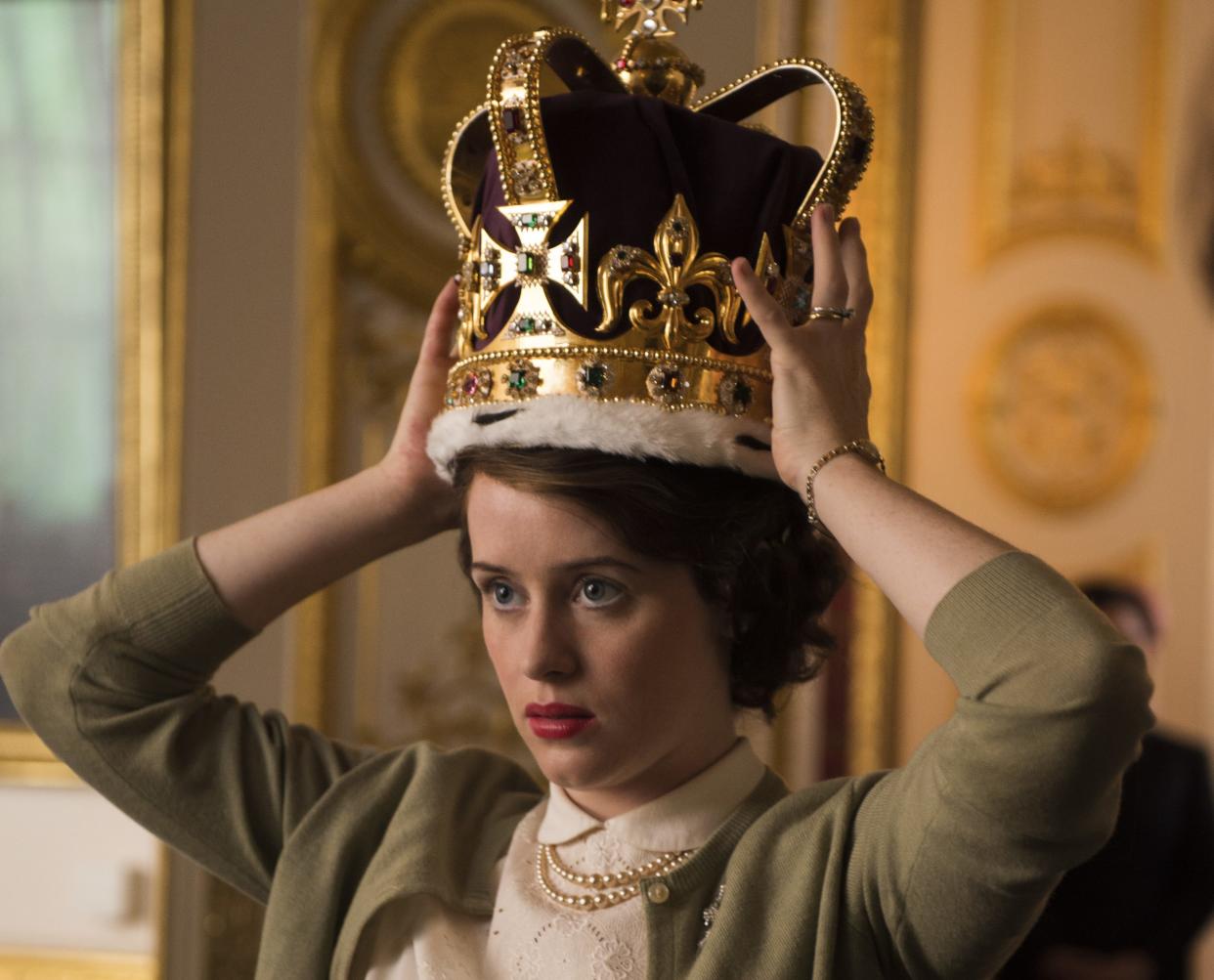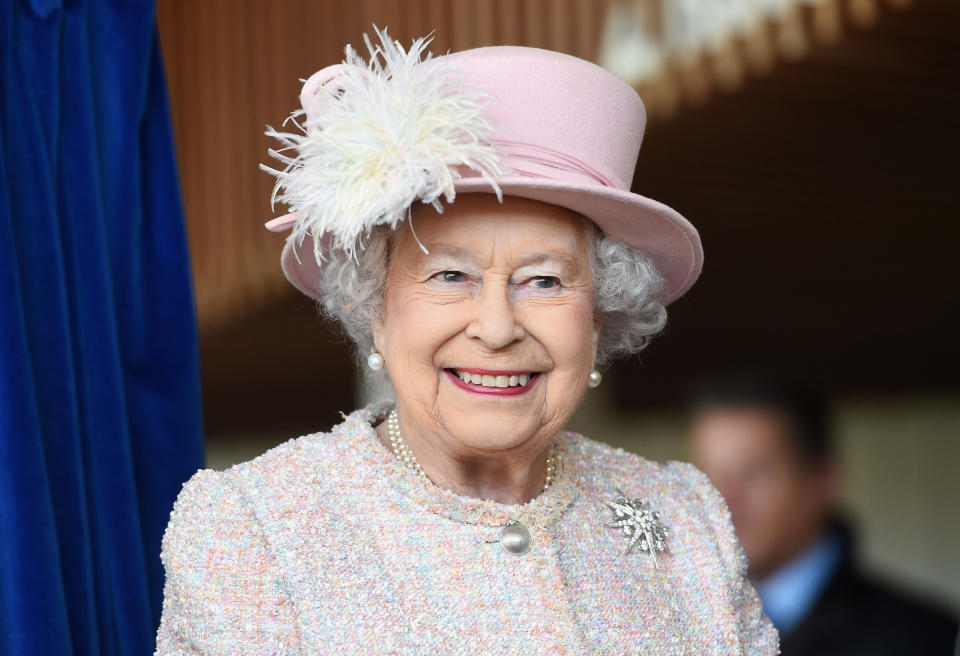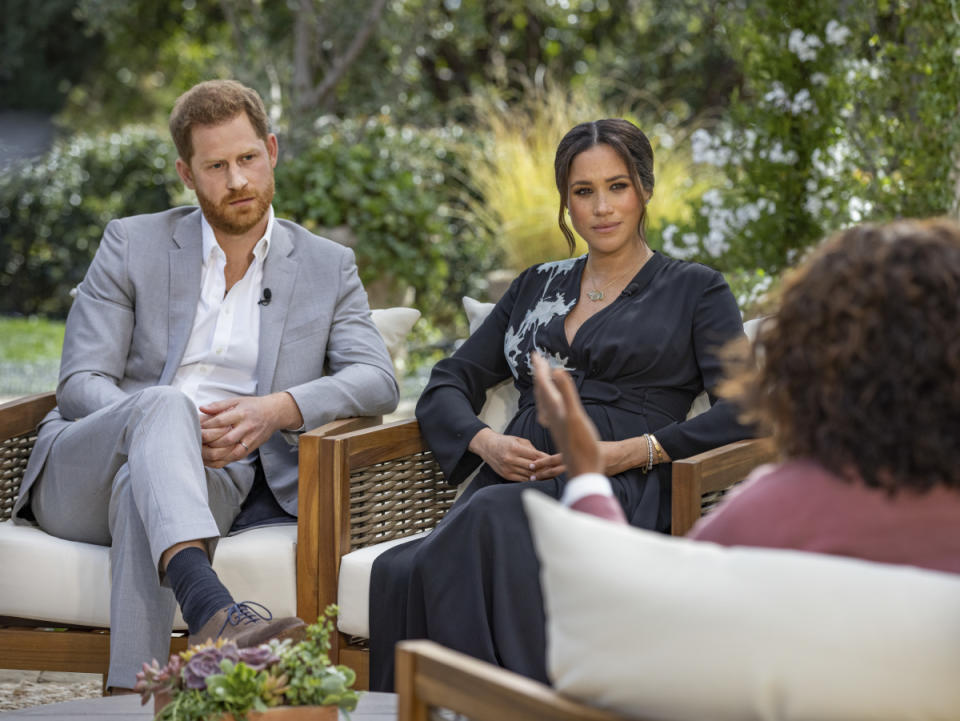King Charles III’s Coronation Will Never Have the TV Drama of Queen Elizabeth II’s

- Oops!Something went wrong.Please try again later.
King Charles III has a tough act to follow. For U.S. television on the day of his coronation, it’s just another day. That’s totally different from 1953, when his mother, Queen Elizabeth II, was crowned. The story behind what happened then would make a good Adam McKay movie.
This time, viewers need only to decide if they want to watch live (at 6 a.m. EDT), later, or not at all. (And based on the indifference to King Charles, the last of these will be a choice for many.) In 1953, they didn’t know when it would be seen on U.S. television, or even where best to see it.
More from IndieWire
Woody Harrelson Thinks Matthew McConaughey Got to Do All the 'Fun,' 'Crazy Sh*t' on 'True Detective'
As related in “The Crown,” even televising that ceremony live in the U.K. (a call made by the technologically progressive Prince Philip, in charge of the event) caused controversy. Within royal upper circles, opening up the millennium-old ceremony seemed sacrilegious or a way to cheapen it for some.

Twenty-seven year old Elizabeth, already a popular figure worldwide, with a fresh image and different personality than most royals, was a ready-made TV figure — even within the confines of pageantry. That celebrity led to a regular use of the medium by the British royal family over later years. They became more familiar, and more famous, with weddings, funerals, even intimate interviews beaming into viewers’ homes. A far cry from the idea of a remote monarchy kept at a noble remove. And this accessibility started in 1953.
Live television in the U.S. in 1953 was commonplace, of course. Indeed, far more was broadcast live then than now. But live events remotely broadcast on location were less common: The Oscars only were first broadcast earlier that year.
The two top networks, CBS and NBC (ABC then lagged far behind, with only limited news coverage), both early on decided to prioritize coverage. But that ran into this reality: In pre-satellite 1953, no live coverage from the U.K. was possible. And videotape was still something of the future.
So when the two rival networks decided it was worth whatever effort was needed to have footage first, they took stock of the challenge and then both tried similar creative measures to win. Looking back, it seems a little silly. But it does give a window as to how technology has changed in the time of just one’s monarch’s reign.
NBC took this far more seriously. Both networks publicly arranged to connect in Labrador, Canada with an RAF jet flying BBC footage from London (on kinescope, the mode of transfer at the time) that would provide identical copies to both, then race by chartered jet to Boston (a shorter distance) from where it would be broadcast.
But in deep secrecy, NBC worked to charter a jet to go directly to Boston without the Labrador stopover. In their ideal plan, the plane would be outfitted so footage could be edited onboard and a coherent program with commentary and context, beyond just raw footage, would be shown, giving NBC a leg up.
Getting the jet was a problem, though. BOAC had a fleet, but backed out of initial discussions before a deal could be made (the plane in question had several fatal accidents recently). A long-shot was a military jet. As it turned out, one was set to be delivered to the Venezuelan military, and NBC arranged to pay for an en-route stop in Boston as their secret weapon.
Alas, part way into the flight, supposed equipment issues required the trip to be aborted. At this point, the story takes another Canadian turn.
Because of the delivery to Labrador, the Canadian broadcaster, CBC, also set up for quick broadcast, had an edge over American networks. The NBC-chartered plane would have prevented that, so someone in the military, elevating Commonwealth ties, interceded to stop that jet, per reports much later.
But the same CBC early broadcast also actually did give NBC a last-minute boost. ABC, not wanting to be totally out of things, had arranged to show that footage. NBC knew this. A spur of the moment deal with ABC was made.
That raw unedited footage made it to NBC and ABC 13 minutes ahead of CBS. The CBS jet from Canada reached Boston first, so if NBC had not adapted and made its deal with ABC, CBS would have won bragging rights.
And yet in one respect, CBS did. The Tiffany network actually managed to show the moment of coronation before the NBC/ABC broadcast, based merely by where it fell on each of their respective kinescopes.

That was then, this is now. This time, we likely get breathless noting of whenever Princes Harry and Andrew are seated, and the usual breathless non-stop commentary about royalty writ large that is de rigueur for American TV. For that kind of detail from the 1953 ceremony, mentioning perhaps the absence of abdicated King Edward VIII, you would need to watch “The Crown.”
CBS News last week ran a brief piece on this. 30 years ago, long time NBC News President Reuven Frank had a very detailed story about this in American Heritage Magazine. Life Magazine, in its coverage (including many color pictures unavailable to TV at the time) devoted several pages to this story.
The frenzy to be the first to broadcast the Queen being crowned was just the beginning of so much drama for the royal family’s TV life. It’ll be infinitely easier for the broadcasters to cover Charles’ coronation in every respect — but, as is so often the case, ease of access has gone hand-in-hand with diminished demand once again.
Best of IndieWire
Where to Watch This Week's New Movies, from 'Guardians of the Galaxy Vol. 3' to 'Chile '76'
Every Palme d'Or Winner from the Cannes Film Festival, Ranked
Sign up for Indiewire's Newsletter. For the latest news, follow us on Facebook, Twitter, and Instagram.

